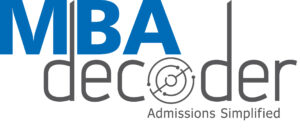
HBS MBA Interview Process is very unique and intense as compared to other b-schools. Applicants selected for interview have two stages to complete. Read on to know every detail about the HBS MBA interview process.
Duration: 30 minutes
Format: By Invitation only
Who conducts them? Members of admissions committee. They are sometimes accompanied by an observer or a note taker
Location: On Campus, in select domestic or international cities, or, via Zoom
Interview invitation timing: HBS send out interview invites at one shot via the application status page and applicants can select their interview slots on the following day. Notably, HBS informs applicants who are not advancing in the process at the same time it sends out interview invitations. Although disappointing, this a blessing as it allows candidates to focus on other applications.
Interviewer’s access: Unlike many other b-schools that conduct blind interviews, HBS interviews are based on your application. The adcom interviewers come well prepared, having read your resume, application and recommendations. This thorough familiarity enables them to ask tailored and carefully-thought questions.
How to schedule the interview: Login to the application portal on the designated date. If invited for an interview, pick a slot from the available dates and time. These slots are available on a first come -first served basis so reserve yours promptly.
Interview Process: HBS interviews are intense and very personalized. They last exactly 30 minutes and typically consist of 15-25 probing questions focusing entirely on your application. The purpose is to gain a deeper understanding of your profile, experiences and decision-making. Questions usually hover around your work experience, industry, intended career goals, specific experiences from your resume, essays and even recommendations, accompanied by several follow up questions. Interviewers focus a lot on learning about the “how” and “why” behind your answers; for example, why you took a particular work opportunity or how you chose your college major? They also test your knowledge on broader issues related to your organization or your industry.
Despite the rapid-fire questioning, the interview follows a structured approach. Given HBS’s case study method, applicants are expected to analyze their experiences and provide meaningful insights, demonstrating their ability to contribute effectively in a case-based learning environment.
Post Interview Reflection: Within 24 hours of the interview, candidates are required to submit a 300-450 word written reflection of their interviews through the HBS online application system.
This reflection is intended to be informal and should be written only after the interview, not prepared in advance. You should spend about an hour on this task, ensuring the content is genuine, unrehearsed and in your own words.
Process for post-Interview reflection: After completing your interview, take time out to reflect on your interview performance. Note areas that you didn’t fully address during the interview, or could explain better; also think of the answers which you delivered confidently. Identify 2-3 examples that could benefit from added depth or some new dimension. These can be used to build the content of your essay.
Also, reflect on the interview itself. Did the interviewer ask you any question that prompted you to think differently about your experience or reveal new insights about yourself? It’s appropriate to mention these realizations in your reflection. Finally, connect your thoughts to why HBS is the right fit for you and how the interview reinforced this alignment.
Interview outcome: HBS admits more than half the applicants it interviews.
Sample Interview questions:
Organization Related:
What do you do at your current/past company?
Why did you take this job?
How did you become interested in your industry?
Why were you promoted over your peers?
What is your role in your organization?
How has your role changed as you have moved to more senior roles?
How is your role different in the current company as compared to your past organization?
Work Related:
Tell me more about <XYZ> project (with many follow up questions)
What is your most impactful project at work?
What challenges do you face in your current project?
Tell me about a leadership experience at work
Tell me about a project where you were a leader.
Self-awareness questions:
What are you passionate about?
What values do you stand for?
How do you lead people?
How do you work with different teams?
How would the different teams you work with describe your strengths?
What is an area for development?
What is your biggest weakness?
Industry Related:
How is your company doing as compared to competition?
What is the outlook for your industry in the current economic scenario?
What advice would you give to your classmates who want to work in your current industry?
Goals And HBS:
What are your goals post-MBA?
Why MBA? Why now?
How will you make an impact at HBS?
What do you hope to get from your job in the months before you join HBS?
Undergrad Related:
Why did you choose your undergrad college?
Why did you choose your college major?
Tell me about <a student organization> you led at college.
Why did you go on <XYZ exchange>? What did you learn there?
tell me about your <Publication/ research>
Hobbies:
Outside of work, what do you like to do for fun?
Tell me about <XYZ> extra-curricular experience.
What are your hobbies?
Anything else you want to discuss that we didn’t cover?
